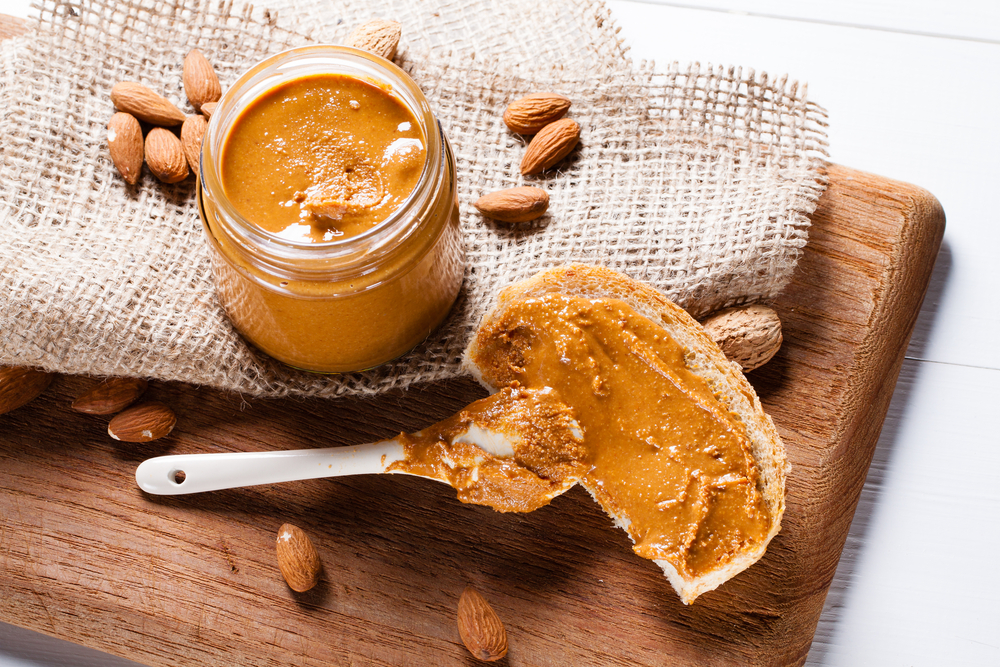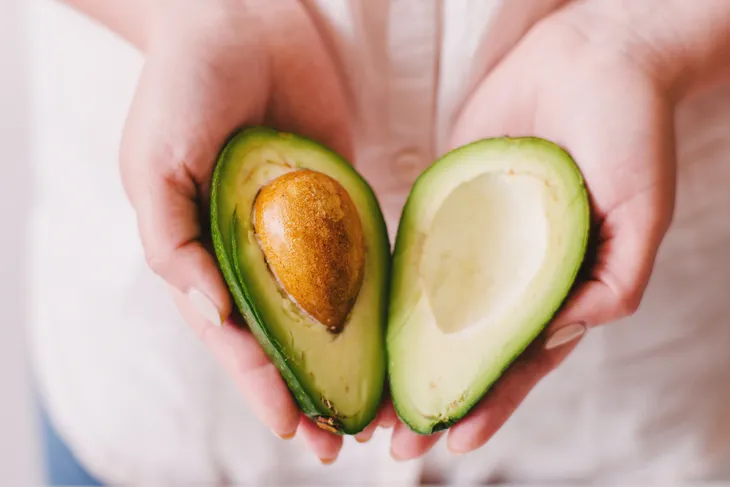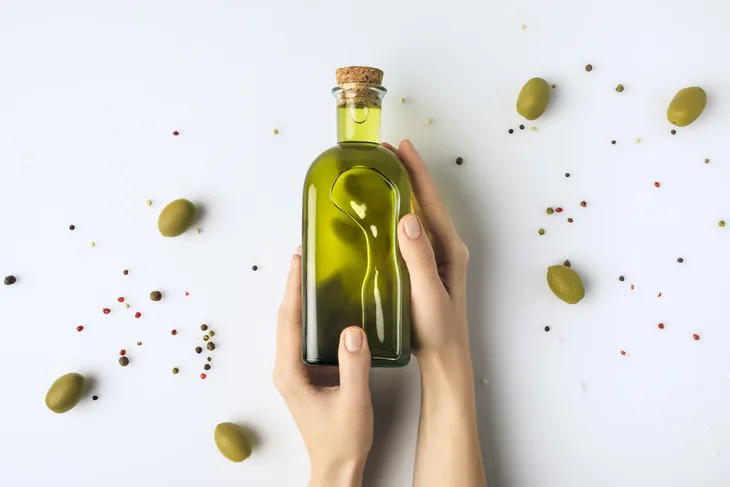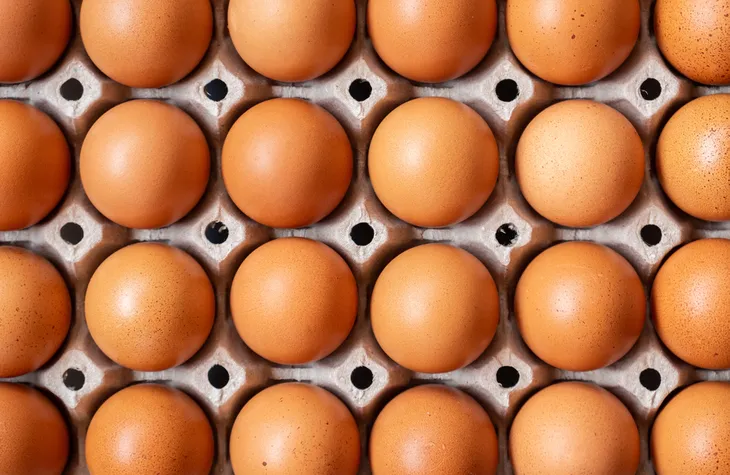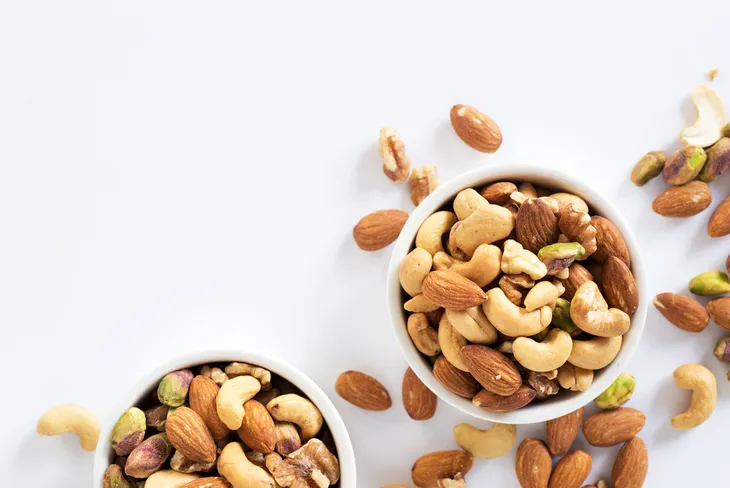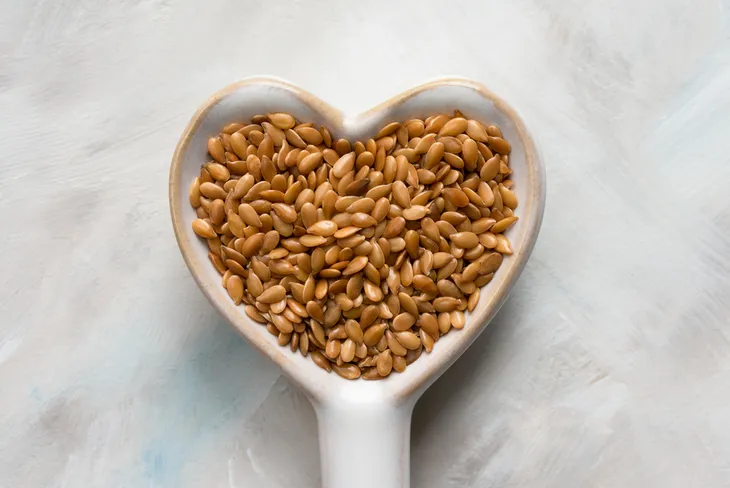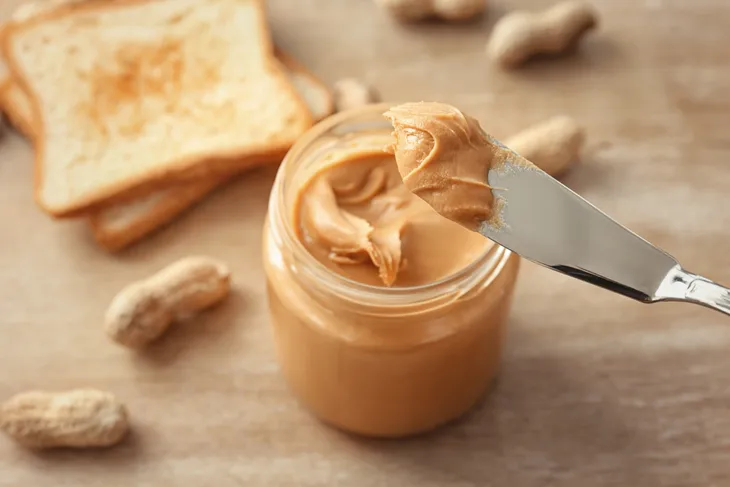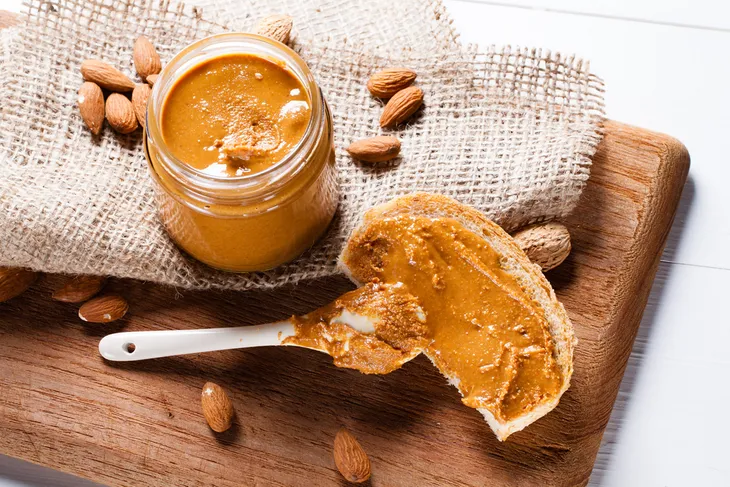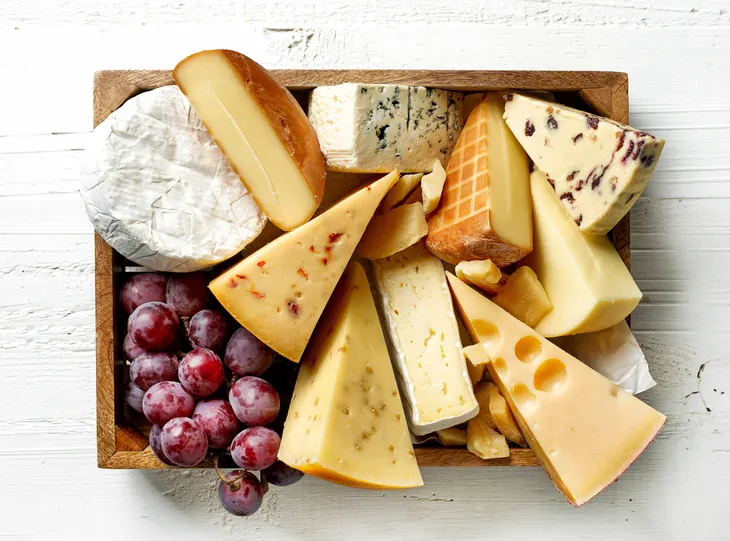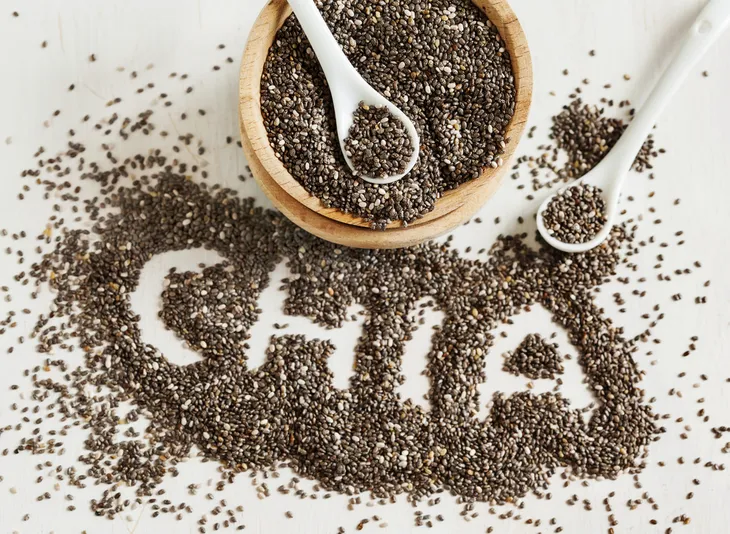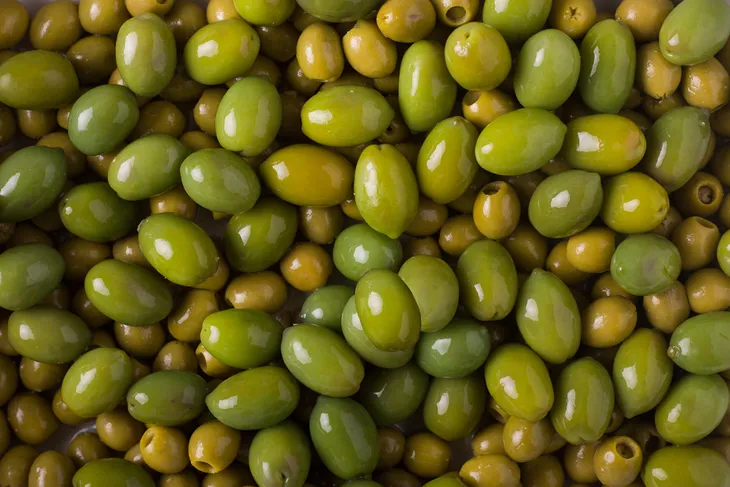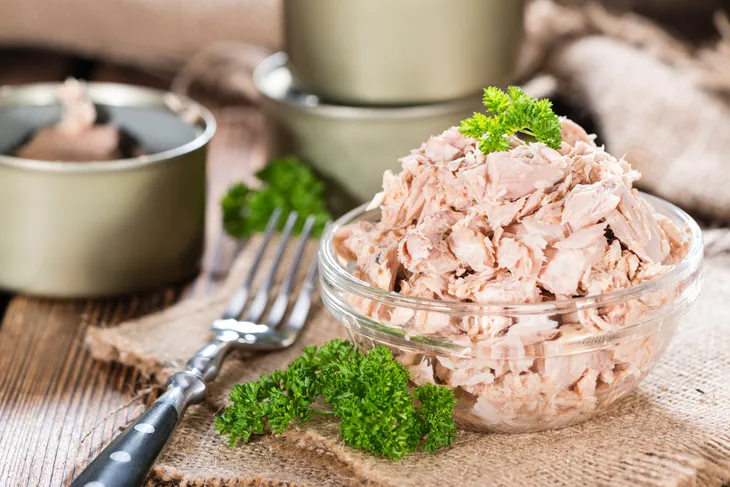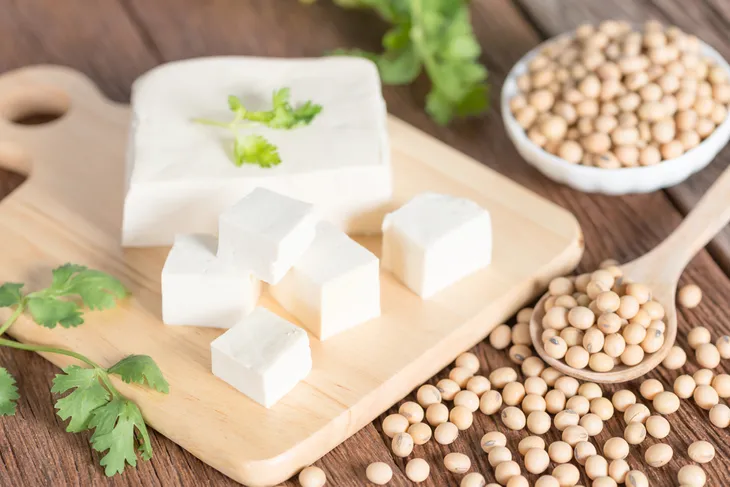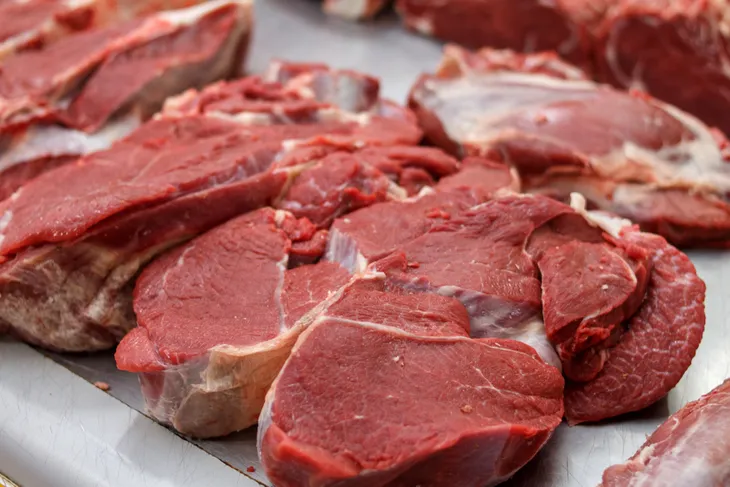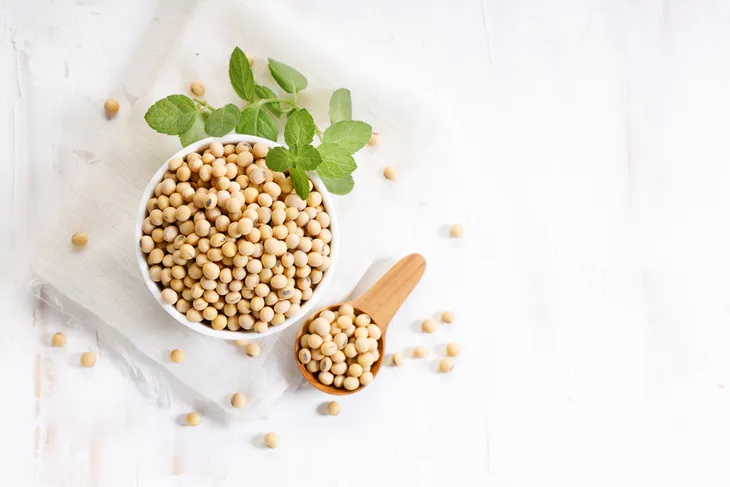Our instinct is to run and hide from any kind of food that contains or causes ‘f-word,’ also known as fat. But what we don’t realize is that not all fatty foods are bad for us. While it’s true, they should be enjoyed in moderation, there are lots of fatty foods that have been proven to be good for us.
Many of the fatty foods that are often considered to be unhealthy because of the fat content are really just misunderstood properties and are now actually an encouraged part of a healthy diet. To benefit from consuming foods with fat, it’s important to know what’s recommended and to check food labels, as well as understand which fats are considered healthy to eat, and what nutrients in fatty foods can help keep you healthy now and in the future.
So don’t shy away from these fatty foods with mega health benefits. You might be surprised just how much good they can do for you…
Want diet & nutrition content delivered straight to your inbox? Sign up for our exclusive diet & nutrition newsletter!
Avocados
Avocados continue to be one of the best fatty foods to eat and with good reason. They are extremely high in fat, but it’s a monounsaturated fat that is great for your body. Avocados are high in calories, but they’re also high in fiber and potassium. They’ve been shown to lower bad and raise good blood pressure, two important factors in cardiovascular health. This fruit (yes, it’s a fruit) also contains antioxidants, one of which promotes good eye health.
Although a lot of people really enjoy the taste and texture of avocado, there are many who don’t. But that shouldn’t stop you from adding it to your diet. You can sneak thin slices of avocado in a veggie-filled wrap, add small pieces to salad, make it a spread with other ingredients, use in place of mayo, add it to pasta dishes, or make guacamole. You can alter the flavor (with a bit of garlic or lemon) without taking away from its goodness.
Olive Oil
There’s a reason people go on a Mediterranean-style diet—it’s very healthy, rich in nutrients, and can help you lose weight. One of the main components of this diet and the reason it’s so effective, is the use of olive oil in all kinds of dishes. Olive oil is another fatty food that’s full of the good stuff, monounsaturated fats. It’s used daily in many homes and authentic Mediterranean-style restaurants as it works well in a range of meals. Luckily, it’s super versatile, so you can easily add this oil to your diet and reap the benefits of doing so.
So what are the benefits? It’s been connected to reducing the risk of certain types of cancer, lowering blood pressure, the risk of developing cardiovascular diseases, and even aiding in better blood sugar control for diabetics. More studies are needed, but olive oil has also been linked to reducing the risk of rheumatoid arthritis, type 2 diabetes, and preventing the development of osteoporosis. Research is still ongoing and it seems that the more studies they conduct, the more potential and proven benefits there are to consuming a diet rich in olive oil.
Salmon
Salmon is another fatty food that’s been proven to have mega health benefits — so much so that the consumption of the fish has increased in countries around the world. Its meaty texture is quite filling and just a small piece is packed full of nutrients. Salmon is high in protein and contains the sought after, highly-health touted omega-3 fatty acids. Most notably, salmon is a heart-healthy food that’s been shown to significantly decrease the risk of cardiovascular disease and the chances of dying from a heart attack.
Although the benefits for your heart are great, salmon also contributes to brain and joint health. Salmon is also a natural anti-inflammatory, and the fish has been connected to lowering the risk of several types of cancers, depression, Alzheimer’s, diabetes, and asthma. You can bake or grill a salmon fillet, or eat canned salmon that contains additional calcium because the small, soft, edible bones are within. No matter which way you eat it, it’s worth adding to your diet. And there are other fatty fish that are good for you, so you have options if you’re not a fan of salmon.
Eggs
For a long time, eggs were seriously misunderstood. Health-conscious people shied away from eating whole eggs, opting instead for only the egg whites. The high fat and cholesterol content in egg yolks led doctors and health experts to recommend only consuming the egg whites in order to avoid what they thought was unhealthy for you. But research over the last decade has shown us that skipping the fatty yolk isn’t necessarily the best option. In fact, the yolk has a lot of nutrients, most of the fat is good fat, and the cholesterol isn’t the kind that’s damaging to your heart.
Eggs contain many vitamins, HDL (good cholesterol), and antioxidants, and are a healthy source of protein. The nutrients in eggs may protect and maintain eye health, lower the risk of heart disease and stroke (the exact opposite of what was initially thought), and keep you full for longer, which can help you lose weight and prevent overeating. Although eggs have many health benefits, not everyone should eat them regularly because it’s not always recommended for people who have certain diseases, such as diabetes.
Nuts
Nuts are often overlooked because of their high fat content, but they actually offer many health benefits. Just a small handful packs a big punch of monounsaturated fats and omega-3 fatty acids. According to the Mayo Clinic, monounsaturated fatty acids can help reduce the risk of heart disease by improving heart-related risks like lowering cholesterol and possibly normalizing blood clotting. Another good thing about nuts is that they’re filling and contain a lot of protein, so it really maximizes what you can get from just a handful of them.
On top of the health benefits for your heart, nuts have been shown to do many other great things for your health. For instance, nuts may decrease the risk of several types of cancers, reduce stress, help lose or maintain weight, protect bones, improve skin, and even potentially encourage brain health and function. Not all nuts offer the same benefits, but most of them are full of nutrients you’ll benefit from. They might be high in fat, but almonds, pistachios, cashews, walnuts, pecans, and several others make a fatty but heart-healthy snack. Go for unsalted, roasted, or raw to avoid the high sodium content found in salted nuts.
Flaxseed
Flaxseed is a super healthy fatty food that is rich in omega-3 fatty acids, fiber, and phytochemicals. The high amount of nutrients within flaxseeds have been proven to help improve health in several different ways, which is why it’s no wonder that health-conscious people have been reaching for and sprinkling flaxseed in their meals. A small amount goes a long way and it’s such an easy thing to add to your protein shake or smoothie after a workout or as a meal replacement. One of the best things about flaxseed is that research has tied it to the ability to significantly decrease blood pressure.
The health benefits of flaxseed don’t stop at heart-healthy. Many studies link these seeds to a reduced risk of skin cancer and liver disease, lower cholesterol (in men only based on research to date), improved digestion, lower bad cholesterol, and reduced inflammation. On top of the physical benefits, flaxseed has also been connected to reducing the risk of mental illness, specifically depression. According to the Mayo Clinic, ground flaxseed is better than whole flaxseed because your body won’t digest the whole seeds, preventing you from benefiting from the many healthy components of this food.
Peanut Butter
People grow up eating peanut butter and jam sandwiches for lunch, though it isn’t nearly as popular now because many schools across North America have banned peanut butter due to allergies. But if you aren’t allergic, you might want to consider adding raw peanut butter (or another type of raw nut butter) to your diet. Peanut butter is a fatty food that offers many health benefits because it’s high in potassium, protein, fiber, and unsaturated fats (the good fat). It can decrease the risk of heart disease and diabetes, reduce abdominal fat, keep you full for longer (often resulting in weight loss), kickstart your energy, and even boost your immune system.
Although there are many health benefits from eating peanut butter, you have to have to buy the right kind. Some products contain a lot of unnecessary and unhealthy ingredients, and many store-bought brands are over processed and sweetened, which limits the healthiness of the product and can actually trigger weight gain. So look for natural (or raw) peanut butter. You can easily see how much healthier the natural kinds are versus the processed varieties. Look at the label, you’ll notice a huge difference between sodium and sugar content and you’ll see artificial ingredients in processed brands.
Almond Butter
Sometimes it’s hard to wrap your head around how something fatty can be healthy for you and could help you lose weight. But there are a lot of high-fat foods that are good for you as part of a healthy, balanced diet. This is the case with almond butter, a food that is high in healthy fats and other nutritional components. Almond butter has been linked to improved bone health and energy while reducing the risk of cardiovascular disease, regulating blood sugar levels, and protecting your skin.
Even just a small serving of almond butter (i.e., the amount you’d put on toast) contains many nutrients that will benefit your health, including a high dose of vitamin E. Since almonds contain fiber, you’ll also feel full for longer. This can really help people who love snacking because their hunger will be satisfied with just a small amount. When purchasing almond butter you should look for the same things you would for peanut butter. Look for natural almond butter that isn’t high in sugar or sodium and that doesn’t contain artificial ingredients and additives.
Dark Chocolate
This last slide is good news for the chocolate lovers out there! If you’re looking for an excuse to eat chocolate look no further—dark chocolate may contain a lot of fatty, but eaten in small servings, this treat offers big health benefits because of the array of beneficial nutrients within. Dark chocolate contains quite a bit of unhealthy fat, but as long as it’s eaten in moderation, the amount of nutritional benefits make it worth the 1- or 2-ounce serving. And for the record, dark chocolate contains good fats as well. Dark chocolate is rich in antioxidants and fiber, which can help reduce the risk of cardiovascular disease, protect skin, and lower bad cholesterol.
It’s also been tied to reducing abdominal fat (a true trouble area for many) and weight loss. It’s important to note that dark chocolate with at least 70-percent cocoa is what you should be reaching for. Unfortunately, white and milk chocolate don’t contain the same healthful benefits. Sometimes just a small amount of something sweet can be satisfying, and a square of dark chocolate in your diet may help you kick unhealthy cravings. So give it a try next time a craving hits.
Cheese
Who doesn’t love cheese?! It’s hard to avoid as it’s on a lot of our favorite foods (hello, PIZZA!), but we’re often told that it’s really bad for us. While it definitely should be enjoyed in moderation, cheese is a good source of calcium, B12, phosphorus, selenium, and lots of other nutrients, says Healthline. It also contains lots of proteins with about 6.7-grams in a one thick slice.
According to a study published in the Annals of Internal Medicine journal, “cheese, like other high-fat dairy products, also contains powerful fatty acids that have been linked to all sorts of benefits, including reduced risk of type 2 diabetes,” writes Healthline.
Chia Seeds
Chia seeds are teeny tiny little seeds, but they are packed with tons of great health benefits. While they’re touted as a great superfood, it’s often warned not to eat too many at a time because they are considered a “fatty” food. Healthline points out that an ounce of chia seeds contains about 9-grams of fat. The source also notes that while “almost all the carbs in chia seeds are fiber, the majority of calories in them actually comes from fat.” In fact, when looking at their calories, about 80-percent of them come from fat content which means they are a really good high-fat plant food.
Don’t freak out if you’ve been eating lots of chia seeds! While the rule of thumb is to just consume about a pinch of seeds at a time, the fats they are loaded with are heart-healthy omega-3 fatty acids called ALA, says Healthline. In addition to improving heart health, they’ve also been known to lower blood pressure and provide anti-inflammatory benefits.
Full-Fat Yogurt
Yogurt is another tricky food that can be healthy, but it can also be unhealthy. It’s all about choosing the right kind of yogurt. For the best health benefits, we want to steer clear of any products that are made with artificial sweeteners or added sugar, which mainly includes flavored yogurts. A better option is plain, full-fat yogurt that is “loaded with healthy, probiotic bacteria, that can have powerful effects on your health,” writes Healthline. Just be sure to always check the label and make sure you’re choosing the healthiest option with lots of protein and no added sugars.
The source also notes that studies have shown yogurt can improve our digestive health, fight heart disease and obesity.
Olives
We already talked about the benefits of olive oil, so how could we not mention olives! These little fruits often get overlooked when olive oil is around, but they deserve a spot on the plate, too! Health.com explains that while olives are high in sodium (you should only snack on about 5 or 10 a day), they also “rich in oleic acid, the monounsaturated fatty acid that protects your heart,” and “rich in antioxidant polyphenols, which protect you from cell damage, as well as iron, fiber, and copper.”
Black olives in particular are high in fat. SELF points out that 1-cup of black olives has about 15-grams of fat which seems like a lot, but it’s mainly monounsaturated fat. Don’t worry, if you’re not a fan of black olives, pretty much all of them have their own nutrients and benefits. According to SELF, some research even links olives to cancer prevention due to the phytonutrient hydroxytyrosol, as well as reducing bone loss, and relieving allergy symptoms or inflammatory conditions.
Tuna
Tuna is such an underrated fish. It’s often overlooked due to other fatty fish like salmon, but it’s also loaded with beneficial healthy fats and omega-3’s, says SELF. The great thing about tuna is that it’s so versatile and pretty much all the options contain the same great benefits. You can purchase tuna in a can, eat it in the form of sushi, eat tuna salad, tuna steak, or even a tuna burger!
The only forewarning about this fish is that you wouldn’t want to eat too much of it because of any potential overexposure to mercury. Just like salmon, SELF advises only eating about 12-ounces of tuna a week which amounts to about two meals.
Tofu
Another high fat food with some amazing benefits is tofu! While this food is typically eaten by vegans and vegetarians, it should be enjoyed by everyone. A small 3-ounce piece of tofu has about 5 or 6-grams of fat and 1-gram of saturated fat. What’s good about this is that it “is naturally-occurring fat from the soybeans, and tofu is considered a health food for a reason.
It’s a solid plant-based protein that’s low in sodium and provides nearly a quarter of your daily calcium needs,” writes SELF.
Grass-Fed Beef
If you’re not a vegetarian, eating a lean piece of red meat once in a while can be extremely nutritious. Steaks are often seen as a high fat food, on average a 3-ounce steak contains only 5-grams of fat and less than 2-grams of saturated fat. “What’s more, lean beef is an excellent source of protein, iron, and zinc, all important nutrients for active women,” writes SELF.
“One 3-ounce portion of lean beef packs a whopping 25-grams of muscle-building protein, three times the iron (which is important for carrying the oxygen in your blood to your brain and muscles) of 1-cup of spinach, and a third of your daily zinc needs to help support your immune system.” Like everything else on this list, lean pork should be eaten in moderation and avoid any processed meats that contain lots of sodium and other preservatives.
Soybeans
You might not eat this food all that often, but you should! Soybeans are a good source of protein and essential fatty acids. “Soybeans — dried or fresh — are a healthy source of complete protein as well as isoflavones (a form of plant-based estrogen), fiber, and vitamins and minerals,” says Leslie Bonci, RD, sports nutritionist at Pittsburgh-based company Active Eating Advice to Health.com. “That’s also true for soy milk, miso, and tofu.”
It’s important to note that this doesn’t mean products that contain soy are healthy like veggie dogs because “meat analogs like Fakin Bacon are primarily soy protein without the other healthful components. So choose whole soy foods for health benefits.”
